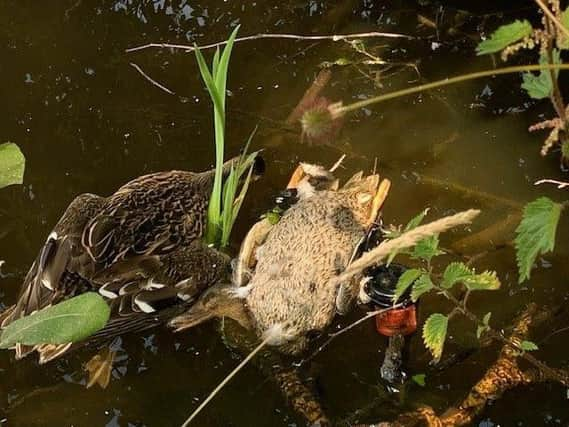Investigation into deaths of ducks at Wigan beauty spot probing disease outbreak


Visitors to Orrell Water Park expressed their concerns after several dead ducks were found in the area a couple of weeks ago.
Other news: Man taken to hospital after being rescued from van following road collisionSince then at least another half a dozen have been found either lifeless on the banks of the main body of water or floating on the surface.
Advertisement
Hide AdAdvertisement
Hide AdConcerned resident Peter Alker, reported the incident to the Department of Environment, Food and Rural Affairs (Defra) after his dogs retrieved eight ducks during a morning walk.
“I was aware that there have been reports of dead ducks for a while,” he said. “But then the dogs brought eight back to me, all dead.
“I thought that this could potentially be a reportable case because of bird flu.
“I rang Defra who said that it is reportable when there are more than four species.”
Advertisement
Hide AdAdvertisement
Hide AdA couple of days after making the call, Peter was visited by the Animal and Plant Agency who took six of the mallards away for examination.
A preliminary report has found that there is no evidence of the birds having eaten soon before they died, ruling out deliberate poisoning as first feared.
The birds have been tested for several strains of bird flu and the West Nile virus.
However, at this stage the authority says that no pathology has been identified.
Advertisement
Hide AdAdvertisement
Hide AdOne of the strongest theories so far is that the birds have suffered from avian botulism which is caused by consuming a toxin that is produced by Clostridium botulinum.
Although fatal to some birds, the risk to humans is considered to be very low.
There are some concerns that the toxins could cause disease among pet dogs, especially if they ingest the carcasses of the animals and therefore dog walkers are urged to keep their animals away from the bodies.
Pet MD advises that most dogs are resistant to the serious effects of Clostridium botulinum type C, but that it can be life-threatening in rare cases.
The investigation is ongoing and Defra has not yet released the results of the blood tests.
They are expected in the next couple of weeks.